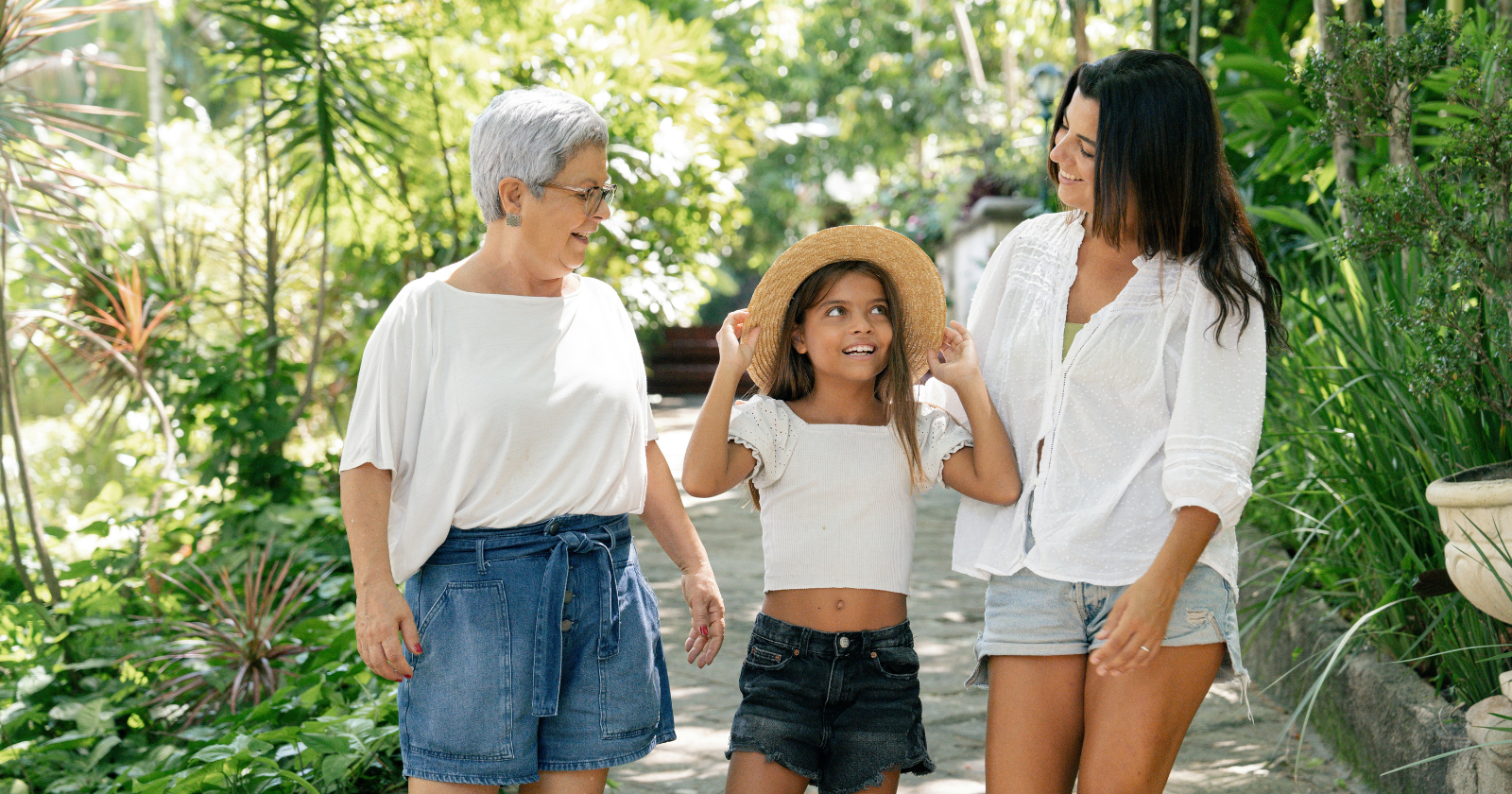Modern family life can turn into a conveyor belt of “be nice,” “say sorry,” and “don’t make a fuss.”
I get why—we’re trying to raise kind kids who can move through the world without leaving a wake of chaos.
Same over here; between daycare drop-offs, preschool pickups, my one WFH day, and Camille’s back-to-back meetings, keeping the peace can feel like the only viable strategy.
But if we’re not careful, some everyday habits nudge our kids to outsource their self-worth.
That’s the seed of lifelong people-pleasing: when being “good” starts to matter more than being true.
I’ve learned this the hard way as a millennial dad to Elise and Julien; we’re all-in on raising kind, sturdy humans—without training them to ignore their needs to keep everyone else comfortable.
Below are seven small, common mistakes I’ve made (and corrected) that can wire kids to chase approval at the cost of their voice.
No shame here—just chances to choose differently!
1) Praising politeness over personhood
Do you ever hear your own voice say, “What a good girl!” or “You’re such a good boy!” when your child follows directions?
I’ve said it because it rolls out so easily.
The problem: Global “good kid” praise ties their identity to compliance.
Related Stories from The Artful Parent
- There comes a day when your child stops telling you things — not because something went wrong but because they found someone else to tell — and that’s the version of letting go that no one prepares a parent for
- A child will grow up and forget almost everything about their childhood except how the house felt when they walked in the door — and that feeling was never about the house
- People who swore they’d never parent the way they were parented usually display these 9 behaviors by the time their kids turn 12 — and every single one traces directly back to the parent they were trying not to become
Kids quickly learn that they’re lovable when they perform well.
A better swap is to praise process and values, not the person.
“You listened to Ms. Cruz even when you were excited—that was respectful,” or “You said ‘no thanks’ with a calm voice. That’s clear and kind.”
Specific, values-focused feedback builds a compass instead of a scoreboard.
2) Turning “sorry” into a reflex instead of a repair
I used to prompt Elise to “say sorry” before she even processed what happened.
It kept the playground moving, but it also taught a subtle lesson: Pleasing others is more important than understanding yourself.
- Psychology says adults who can’t make decisions without asking everyone’s opinion aren’t indecisive—they were criticized so harshly for wrong choices that they outsource the blame - Global English Editing
- I retired at 65 after thirty years in education, and the thing nobody prepared me for wasn’t boredom or finances, it was the genuine terror of watching my own mind with suspicion every single day - Global English Editing
- I spent forty-three years being the person everyone counted on at work and then I retired and realized I had built my entire identity around solving other people’s problems—and now nobody needs me to solve anything - Global English Editing
Now we slow down, kneel, and narrate.
“Looks like your scooter bumped Noah. What happened? What do you wish had gone differently?”
Once she feels seen, the repair lands—sometimes it’s “sorry,” other times it’s checking if Noah wants a turn or bringing him a bandage sticker.
Connection and responsibility is better than performance. That keeps apologies sincere rather than automatic people-pleasing scripts.
3) Confusing kindness with constant “yes”
Here’s a quiet truth: Kids can’t learn healthy boundaries if they never get to use them.
If we overrule every “no,” they learn to trade their comfort for our approval.
At our house, we practice “little no’s;” Elise can say no to tickles, no to more hugs, no to sharing a beloved stuffy right now (we offer a swap).
Julien can push my hand away during spoon-feeding; I pause, offer again, or let him try.
We still keep non-negotiables for safety and screen-time limits, but we explain the why and offer choices within the limit.
This matters long-term.
People-pleasers struggle to say no because the cost of displeasing someone feels catastrophic.
When you normalize respectful no’s in early childhood, you inoculate against that panic.
You’re saying: Your body, your feelings, your time—real and respected.
4) Overpraising outcomes and “easy” compliance

Gold-star parenting seems harmless: “You get a cookie if you put toys away!”
It works—briefly—but decades of research shows heavy use of rewards can backfire, nudging kids to perform for the prize (or praise) instead of developing internal motivation.
Do I still cheer when Elise helps? Of course, but I try to spotlight meaning and skill, not my approval: “You sorted the blocks by color—that made clean-up faster for everyone.”
When clean-up becomes about contribution and competence, kids don’t need a treat (or a parent’s pleased face) to do it tomorrow.
5) Shushing big feelings instead of coaching them
“Use your nice voice,” “Don’t be dramatic,” and “You’re fine.”
I’ve said all three on nights when Julien only wants to contact nap and dinner’s boiling over.
Yet, hard feelings are a problem to minimize so other people feel comfortable.
Emotion coaching is the antidote—name the feeling, allow it, then guide it.
Sometimes I’ll whisper to Elise, “You wish the bath were longer. That’s disappointment. You can stomp it out or snuggle it out—pick one.”
When kids learn that feelings are allowed and manageable, they don’t need to contort themselves to prevent someone else’s discomfort.
They can be kind and honest.
6) Doing the talking (and rescuing) for them
Ever jump in to explain your child to a teacher, relative, or other parent before your kid has a chance?
Well, I have!
On my WFH day I once found myself narrating Elise’s every move at preschool pick-up like her PR agent: “She’s tired; she skipped rest today; she’ll say thanks in a second.”
She didn’t need a spokesperson—she needed a beat to find her own words.
Now, unless safety or respect is on the line, I breathe and wait. I might prompt with a whisper: “Do you want to ask for space or a high-five?” or “What do you want to say to Ms. Cruz?”
When kids practice their own advocacy in low-stakes moments, they’re less likely to default to pleasing in high-stakes ones.
We can still scaffold—role-play a birthday party greeting, script a polite decline—but let them deliver the line.
7) Calling everything “rude” instead of teaching tone
Quick confession: I once labeled Elise “rude” for saying “I don’t like this dinner.”
The better coaching would’ve been tone and phrasing: “You can say, ‘No thank you, I’ll pass on the chickpeas.’”
When we slap a global label on a kid for honest preference, we teach them to hide their truth to keep approval.
We want kids who can disagree respectfully, not kids who agree to everything to avoid labels.
Practice the rephrases together:
- “I don’t want a hug—fist bump?”
- “I’m not ready to share that toy. Let’s set a timer.”
- “I can’t play now. I’ll be ready after snack.”
That’s not impolite, but a developing voice with social skills attached.
De-programming people-pleasing in our children
Before we get to the end of this article, ask yourself:
- Am I coaching words and tone instead of demanding constant niceness?
- Did my child get to say no to something safe today?
- Did I praise a value or skill, not their identity as “good”?
- Did I let them speak for themselves when adults were around?
- Did I model a boundary of my own?
- If I used a reward, did I also reflect on meaning and contribution?
- Did we repair after a rough moment?
The goal isn’t rebellious kids who never compromise, but kids who can care without collapsing their needs, who can disagree without disrespect, and who can love others without abandoning themselves.
That’s the opposite of lifelong people-pleasing—and it starts with a hundred tiny choices we make at home.
Tonight I’ll be packing backpacks by the door, restocking the diaper caddy, and humming Julien to sleep while Camille sets out lunch boxes.
We are joyfully wiped—and we’re learning, day by day, to raise children who aren’t chasing our approval, because they already feel steady inside.



